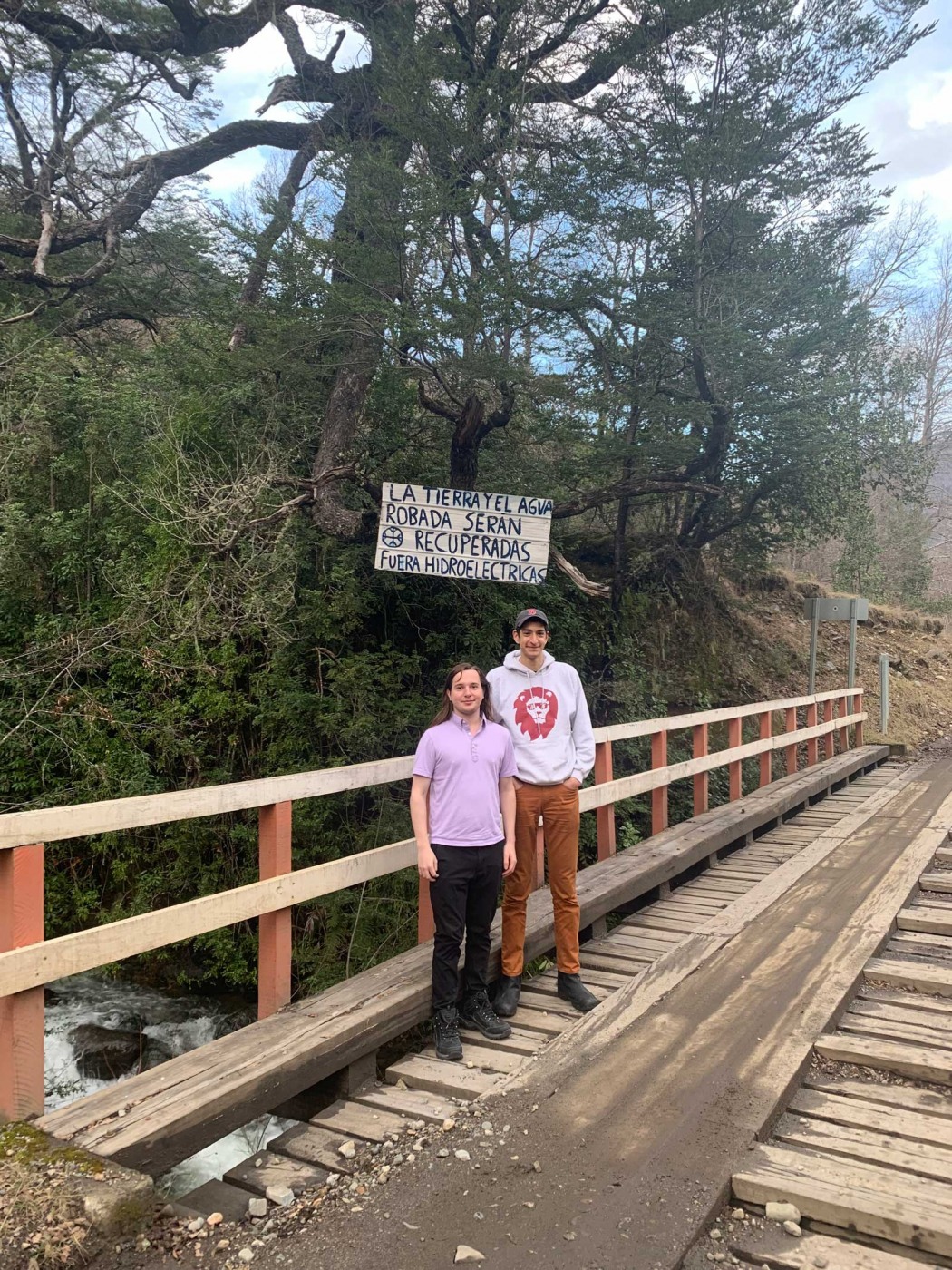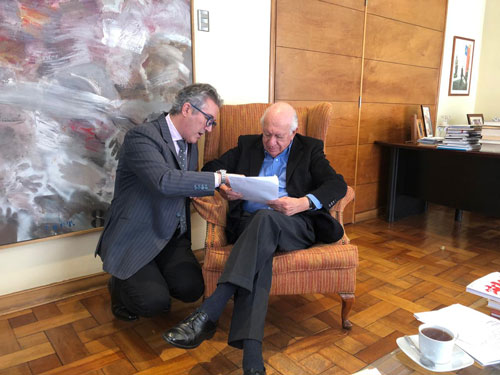PROVIDENCE, R.I. [Brown University] — When Brown juniors Daniel Newman and Peter Lees signed up for John Tomasi’s political science course Bleeding Heart Libertarianism in spring 2019, they expected four months of reading and discussion on the history of libertarian thought. What they got instead was a self-directed crash course in applied political philosophy — and a ticket to Chile.
Newman, Lees and two fellow students have spent much of this summer working in Chile with Tomasi, who directs the Political Theory Project at Brown, to investigate the country’s unique political model. Chilean leaders have since the 1980s implemented several policies that aim to prioritize both economic liberty and a fair distribution of goods and opportunities — policies that align on some levels with the “market democracy” model for which Tomasi advocates in his much-debated political philosophy book “Free Market Fairness.”

“Social justice ideas and free market ideas are traditionally seen as being at odds with one another,” Lees said. “But Chile is an interesting case where that’s not necessarily true. Chile has a lot of policies that encourage free markets and minimize state involvement in roads, water and various other fields that involve more state planning in places like the U.S. But at the same time, there’s a concern that no one gets left behind and that the poorest people are still doing okay.”
Lees said he knew little about Chile until he took Tomasi’s course. In the first three weeks, the class explored Chile’s political past and present and discussed its potential future. Once students had a grasp on the basics, Tomasi placed the rest of the course in their hands: He asked pairs of students to dive into one specific aspect of Chilean society, evaluate its strengths and weaknesses, and lead a class discussion on the topic.
“Each pair would study up on some topic related to Chile, from welfare reform to school vouchers to gender issues,” Tomasi said. “Then they’d send along some readings for me and the rest of the class, and we’d have a seminar where they would apply my theoretical model from ‘Free Market Fairness’ to that topic.”
Tomasi was so impressed by students’ presentations that he asked several of them to join him in Chile, where he’s working with colleagues at the Centro de Estudios Públicos (CEP), a prestigious think tank, to translate “Free Market Fairness” into Spanish and to write a new chapter applying his political philosophy to the conditions in the country.
“These students are helping me figure out, in the context of Chile, how we execute this idea,” Tomasi said. “This country is showing people that you don’t have to choose between far left and far right — that there’s a way to bridge the two. We want to see if Chile’s policies can serve as a model for other Latin American countries.”
On the ground in Chile
Early last semester, two students in Tomasi’s class presented on indigenous communities in Chile, focusing on how they had been affected by changes to the country’s road, water and school systems in the 1980s. Tomasi wanted to learn more — so he invited Newman, a fluent Spanish speaker and Latin American studies concentrator, to spend his spring break and summer interacting with scholars and indigenous people in Chile.

Newman said his on-the-ground experience in regions south of Santiago, where many of Chile’s indigenous communities live, has made clear that indigenous peoples’ relationship with the state is more complex than news articles and scholarship can convey. He learned from interviews with community members that they have mixed feelings about the “market democracy”-inspired policies in Chile. On the one hand, many feel grateful for the school voucher system, which makes quality schooling more affordable to low-income families, Newman said. But they are critical of water privatization, which has increased the cost of water and thus made it more inaccessible to them.
“Being able to translate and utilize the information I learned in classes in a real-world setting has been incredibly rewarding,” Newman said. “I have learned a tremendous amount about the difference between theory and practice.”
In Santiago, the country’s capital, both Newman and Lees have interacted with Chilean political leaders, including former president Ricardo Lagos, along with researchers at the CEP and the Fundación para el Progreso (FPP), another major think tank. They spend their days connecting with scholars who have dedicated their careers to studying water, pension and educational reform in Chile, seeking insights that could help inform Tomasi’s new book chapter.
“One of the researchers I've met specializes in water facilities, and she spent years as an administrator at a private water company,” said Lees, a public policy concentrator at Brown. “I’ve spent time with her not only to make sure my own understanding of the policy is correct, but also to ask about what else I should read to develop a better understanding of the theory that informed that policy.”
Tomasi said he has left students largely to their own devices, trusting them to dig up original insights and make their own connections with academics and local residents. Giving students freedom to roam has ensured they’re open to learning from scholars at both the CEP and FPP, he said, which lean in different political directions. Tomasi said scholars at both institutions have conveyed that the students’ infectious energy has forged new connections between the two think tanks, which could ultimately lead to innovative scholarship.
“Students don’t come to Brown to become merely skillful defenders of some inherited ideology,” Tomasi said. “A Brown education at its best should be about encouraging students to think in new ways and build bridges where chasms exist. Of course, you can’t build a bridge to the other side until you know what’s over there — and that’s what these students are doing this summer.”